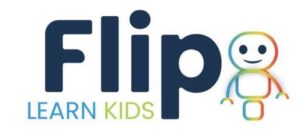Dive Brief:
- Thirty percent of surveyed educators said they plan to leave the education profession within the next three years, while another 33% said they would “maybe” do the same, according to a report released Wednesday by Horace Mann Educators Corp., a financial services company that focuses on educators.
- For those thinking of leaving, the largest share — 42% — said they would retire. Another 28% said they would consider the private sector, and 10% would move to another public sector position, the survey found.
- What would keep teachers in education? Respondents largely said higher salaries (57%), followed by improved parent or community support (42%), and better school or district leadership (41%).
Dive Insight:
The survey backs up previous research illustrating that the teacher shortage is not going away in the immediate future.
The Horace Mann survey polled 573 educators, including K-12 teachers, administrators and support personnel in November.
Teacher shortages are showing signs of worsening in several states, lately including Minnesota, Colorado and South Dakota. For instance, 85% of educators in Colorado said teacher shortages are significantly or somewhat worse now compared to previous years, according to a Colorado Education Association survey.
The Horace Mann survey found there has been a shortage of support staff, such as substitutes and support specialists, too. Among the educators surveyed, 14% reported many open and unfilled support staff positions at their schools, while 33% said there were several.
This lack of extra help adds to the mounting frustration teachers feel in addition to feeling overworked, said Kelly Ruwe, national business solutions executive at Horace Mann.
“So many educators thought once we came back from the pandemic and we’re back to normal, it would just be business as usual,” Ruwe said. “I think they’re now realizing we have a new normal.”
K-12 workforce shortages also impact students, as the survey found 28% of educators said understaffing severely impacts students’ ability to succeed, while 52% reported a moderate impact.
When there’s less support staff or teachers available, that leads to bigger class sizes and less personalized time with students, Ruwe said. If teachers are covering other classes, they’re not able to plan accordingly for their own lessons, she said.
Ruwe suggested schools start with building recognition programs for their educators. School leaders should also be developing a staff retention plan, she said. Both of these initiatives can ultimately create a positive school culture that educators want to see, she added.






Leave a Reply